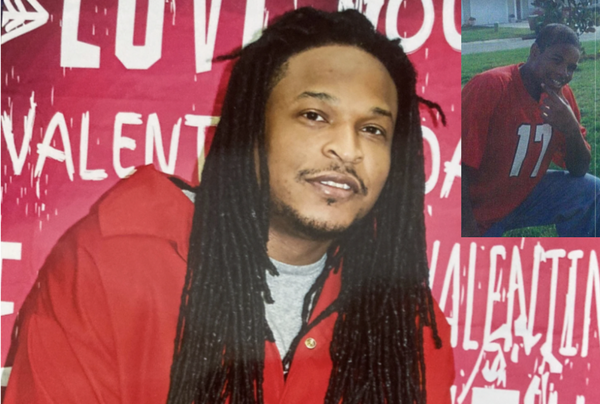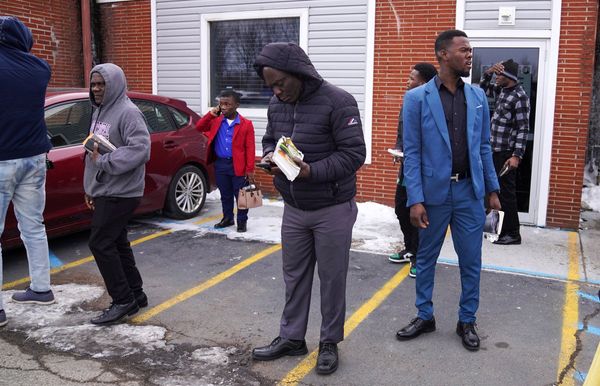
Quite possibly we’ll be able to date a new era in Australian politics from the time when Senator Lidia Thorpe lay down in front of a float at the 2023 Sydney Mardi Gras, and was yelled at by the crowd who cheered on the police trying to remove her.
The float that Thorpe lay in front of was initially said to be the Australian Federal Police (AFP) float, but was later reported to be a trans-support youth services float that was in front of the AFP one. Presumably the police float was the target and it wasn’t possible to get in front of it directly, or something. But the point was well made, and the conservative media helped. They were so keen to make it a confrontation between the cops and a radical Blak activist that they were happy to report that it was a cop shop on wheels.
That someone was booed by the Mardi Gras crowd for protesting; that it occurred in the first Mardi Gras to have a serving prime minister marching; that the people who then condemned Thorpe for her protest included Nationals Leader David Littleproud, just shows you, shows you, um, well, what? The event has so many angles that had it not occurred, politics tutors would have had to invent it as a teaching aid.
First off, it was magnificent, gutsy and audacious. Perhaps there was some pre-planning with the actual stopped vehicle, I dunno, but it’s not nothing to lie in front of a vehicle, even one moving at 4km/h and done up like a giant slice of fairy bread. Second, protesting solo takes a fair bit of oomph; sometimes such protests teeter so close to silliness that you’d rather be run over to end the embarrassment.
But the point was absolutely spot on. Mardi Gras organisers have given float space to private corporations including American Express but denied groups such as the NSW Teachers Federation — even though it’s a sure bet that left-wing, unionised teachers would have been a fairly significant presence in the original 1978 protest party.
Sure, Mardi Gras had to change as it went from illegality to inner-city popularity to global, nation-branding phenomenon, but the embrace of platform and finance capital and the exclusion of actual community groups is a pretty sad place to get to. The event was long ago taken over by fairly apolitical types, and they haven’t had much resistance in recent years.
Claims by the LGBTQIA+ left that queer is inevitably radical are utterly bogus. First, from the 1980s onwards, gay lib was smoothly integrated into the mainstream, following legalisation. Queer’s initially transgressive, disruptive impact has modulated as its advocates have become a major proportion of Australia’s cultural producers. Queer is now the house ideology of middlebrow, knowledge-class culture, as tediously rote and moralistic as was once the Christianity it went up against.
Even so, the inclusion of the AFP is next level. The organisation of many of the people who got their heads cracked don’t get a look-in; the head-crackers do.
The AFP is a sinister, politicised, self-serving force, casual about doing damage in the pursuit of its goals, often self-serving. Mardi Gras may have become a semi-publicly owned event, but it’s got to be something a bit more than Homo Moomba, otherwise its meaning dissolves altogether. No police force should have a role in it. I’d say exclude the fire service as well, but I suspect that would not fly.
So Thorpe joined her political resistance capital as a Blak representative to the “no pride” cause because, as she noted, they’re not merely linked but two expressions of the same thing. The co-option of Mardi Gras, to the point where it is indistinguishable from state tourism and national branding, is the same as the soft totalitarian process governing the politics of the Voice, and the attempt to remove the former from the latter.
The latest episode of this was Professor Megan Davis telling a Universities Australia conference that the organisation — representing the places whose core role is unrestrained and unguided free inquiry and thought — should adopt a pro-Yes position on the Voice. She’s quoted by The Australian as saying:
Universities say they don’t want to be political but the decision not to take a stance for Uluru and the referendum and the Voice to Parliament is a political decision.
We have strong positions on freedom of speech, which is political. We withdraw from investing in some industries, which is political.
This is bad analysis, deliberately or otherwise. Universities have to choose where they invest, if they invest. But that investment body is the enabling corporation attached to the university, not the thing itself. And free speech and free inquiry is a meta-value, one which makes a reflexive politics possible. What is the status of an academic arguing for the No case in an organisation whose official policy is Yes? Not great I would have said. Universities shouldn’t have an official position on any public issue, save for that universities as places of free inquiry are a good thing.
Davis’ call was in response to the vice-chancellors association’s correct call (and that’s a rare thing) that it would have no official position on the Voice. In response to Davis’ speech, the report says, the Universities Australia 1000-strong conference gave a standing ovation.
Well if that counts as an endorsement of Davis’ position that being pro-free-speech is a political position on the same plane as having a position that speech X — on the Voice, fluoride, the Schleswig-Holstein question — explicitly supports, then that’s a shame, and a further sign that universities have become so instrumentalised that many of their staff, academics or otherwise, no longer understand the unique critical and reflexive role they must exercise in a modern society.
Meanwhile, out of the cloisters, Thorpe’s striking act represents, gasp, the return of actual politics to a country whose institutions now form a unified force acting against it. Imagine, an actual politics, making the state react, rather than trying to get it onside to exclude your proximate enemies (before it turns around, its dragon’s neck flexing, and burns you again).
Imagine responding to the Blak gulag by occupying a magistrate’s court that’s acting as little more than a prison mill. Imagine responding to the grievous healthcare crisis in remote areas by occupying the Health Department, the foyer of a private hospital, anything. It’s going to have to be more than one senator doing it, and one wonders where the other warriors are in this.
But as far as the rest of us are concerned, in regard to the above issues, and as long as it’s even minimally organised, just tell me where to come to, and what to lie down in front of, and I’m there. I reckon I’m not the only one. Anything that will turn a bit of heat back on the state that is doing all the killing, or letting it happen through inaction and underfunding, or both, and stop, even for a moment, this ghastly carnival of coerced consent to what are, and have always been, utterly political questions. Maybe a new period has commenced, or maybe the giant fairy bread will roll over us all.
Was Lidia Thorpe “magnificent, gutsy and audacious” or just attention-seeking? Let us know by writing to letters@crikey.com.au. Please include your full name to be considered for publication. We reserve the right to edit for length and clarity.







